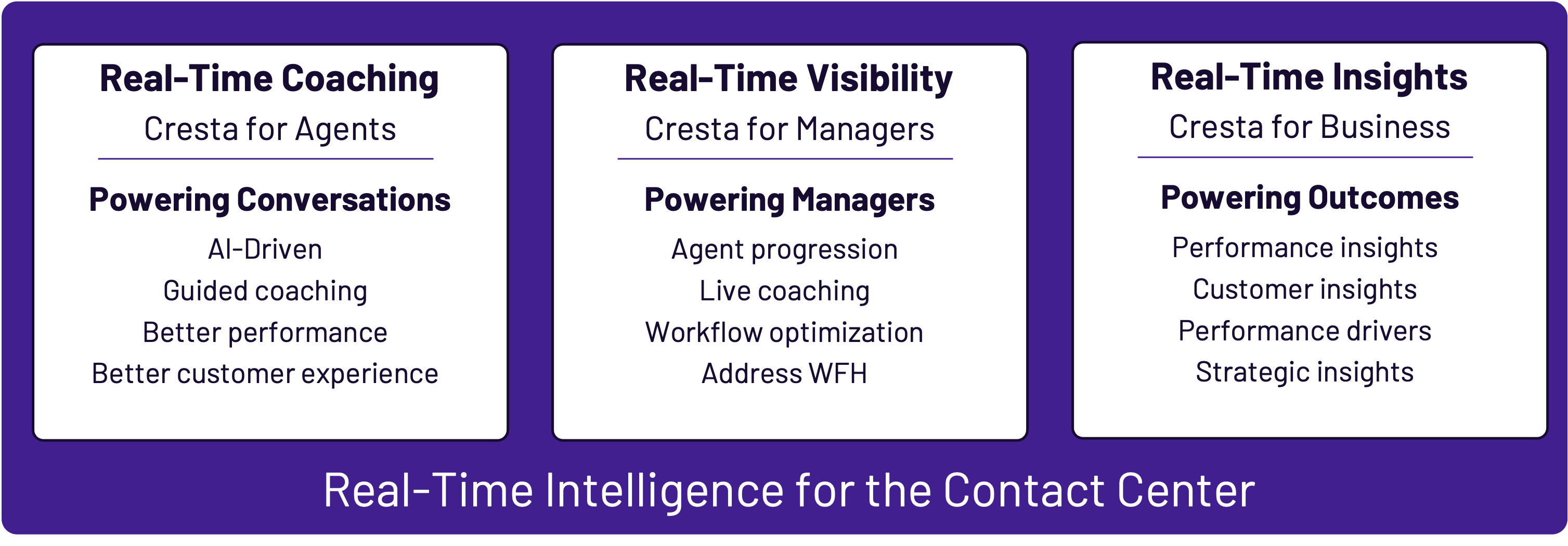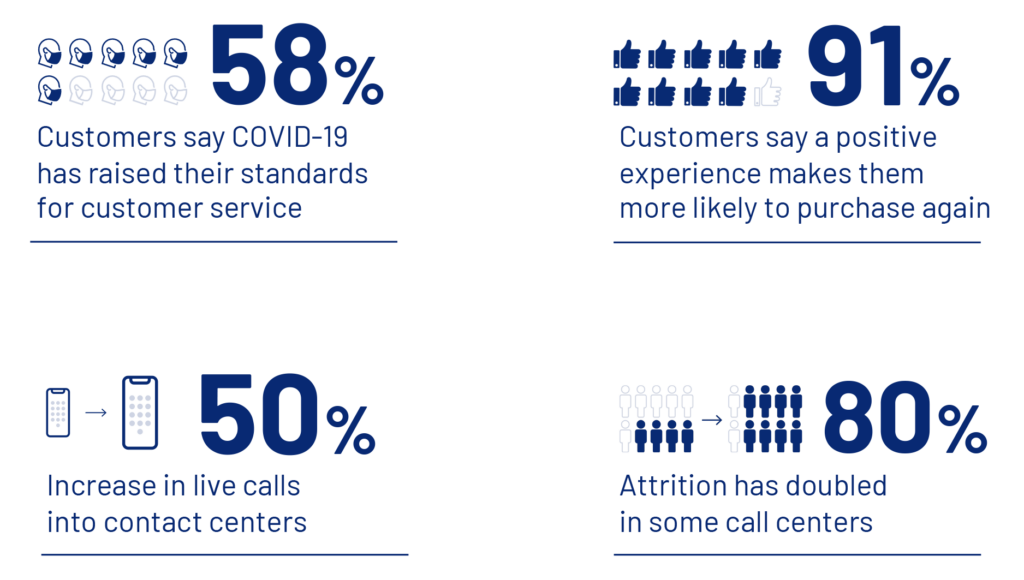Lazy AI (artificial intelligence) is a phenomenon that occurs in contact centers across the globe, according to Zayd Enam, CEO, and Co-Founder of Cresta: an AI-powered platform that lends organizations real-time insights into the behaviors of contact center agents and customers. Like most insights platforms, Cresta assists contact center agents and management in quickly and effectively resolving customer queries.
And for salespeople, it helps them close deals with greater insights into what a customer might want. Back in March, the firm announced an $80 million Series C funding round, which gave the company valuation of $1.6 billion. Both Genesys and Five9 invested in the firm, giving it some serious weight, so I decided to sit down for a chat about something plaguing the industry with a leading authority on the matter.
Enam told me that the industry is "plagued" with lazy AI, which he contends is 'good' for automating tedious tasks but weak at providing real-time help to agents and salespeople. I sat out to get to the bottom of how to best implement AI to assist agents, management, and salespeople and make their jobs easier. On the other side of the coin, if AI gets implemented properly: it could very well enhance one's bottom line and increase agent productivity - across the board.
More on the top use cases for AI in the contact center
AI has become somewhat of a buzzword in the contact center, and companies have inserted it in various capacities, some of which aren't quite practical. Poorly-deployed IVR (interactive voice response), lackluster self-service options, and more, all play a central role, according to Enam.
The rest of our conversation explores how companies of all sizes could implement AI in the contact center to yield (actual) results that further their mission and improve CX (customer experience) metrics.
Arbitrary and Out-of-the-Box AI are Non-Starters
It seems that today many folks want to check off AI as a feature that exists, "We have AI," But where is the value? What insight can one derive from arbitrary AI? Enam says little-to-none.
"The fundamental value of AI is that it enables humans to be super-human. Combing humans and machines to unlock possibilities that we had not previously thought of is the kind of value AI can lend an organization today," he added.
Furthermore, according to Enam, well-placed AI could make agents 50 to 100 percent more effective at their work, whereas off-the-shelf AI doesn't enable custom customer experiences. If it doesn't have a purpose, don't add it, especially (when it comes to) AI.

Many folks are merely in the business of saying 'we have AI' but not knowing how to best leverage the tool for the benefit of the company, agents, and customers, something Enam said; has to change. He added that AI is more than checking a box; it has to be practical.
It requires a fundamentally different approach to achieve improved metrics, he shared. Regardless of the vendor or place, it is a no-brainer to make these kinds of investments, according to Enam, who said that is because there are a lot of repetitive patterns, giving AI its time to shine.
"In this kind of environment, the ROI is quite high. For one-off tasks: AI doesn't provide much value, but the opposite (can be said) about repetitive tasks: which contact center agents know all too well."
Adding AI to the contact center lends agents access to high-value information and contextual knowledge, all at their fingertips, making AI the safest bet for any contact center, Enam told me. Why? As it can (overall) make agents more impactful at their assignments.
Insights from Well-Placed AI are Invaluable
We have talked a lot about how (not) to insert AI into a contact center: but not much about the kind of insights one might procure from well-placed AI. While there are endless possibilities, some are more valuable than others.
Things like: What makes agents good at their job? How do top salespeople close deals? How do top support agents get so good at resolving queries? From there, organizations can take those data and coach other agents on how (to best) resolve customer inquiries.

For instance, what does an agent do if a customer gets upset? Should a manager step in to assist? What are the next steps? When a conversation converts, why does it convert? Real-time insights are the most important for businesses so they can adjust the CX they extend in real-time. Enam believes that legacy systems are not as sound at lending this information, telling me:
"There are tools like the ability to transcribe conversations and NLU (natural language understanding) so agents can better serve customers, that just work better in the cloud."
There are still a sizable amount of businesses leveraging on-prem communications as they have made fairly big investments in the technologies. Enam notes that the entire contact center experience is less clunky when it's in the cloud, however.
Self-Service AI is Here to Stay
As the Coronavirus Pandemic happened, flights got canceled, as did other reservations for things like rental cars and Airbnb rentals. All that pressure likely contributed to the feeling most agents felt; (which was) largely overwhelmed with their workload.
This led to the rise in self-service options: (some of which) lacked functionality, leading to even more customer frustration. "Not all customers want to talk to people all the time," something Enam said became all-too-clear during the Pandemic. The same can (be said) about agents who have some of the most taxing jobs on the planet.
At any given time, agents might handle multiple conversations, as we've seen the rise in omnichannel communications (as a result of the Pandemic as well). That means a Twitter conversation along with a phone call is not far off from being a reality. Plus, that same agent could handle an email conversation and a web-based chat via a company website.
Self-service options, according to Enam, help reduce the strain agents feel and could result in happier agents, customers, and agents who want to stay at their job. If agents have the tools to pull off their tasks with no hiccups, that can mean only one thing - a more well-oiled operation, for which the implications are endless.
If the Pandemic taught us anything, it is that flexibility, data, customer experiences, and self-service are central (when it comes to) maintaining a loyal and happy customer base.



